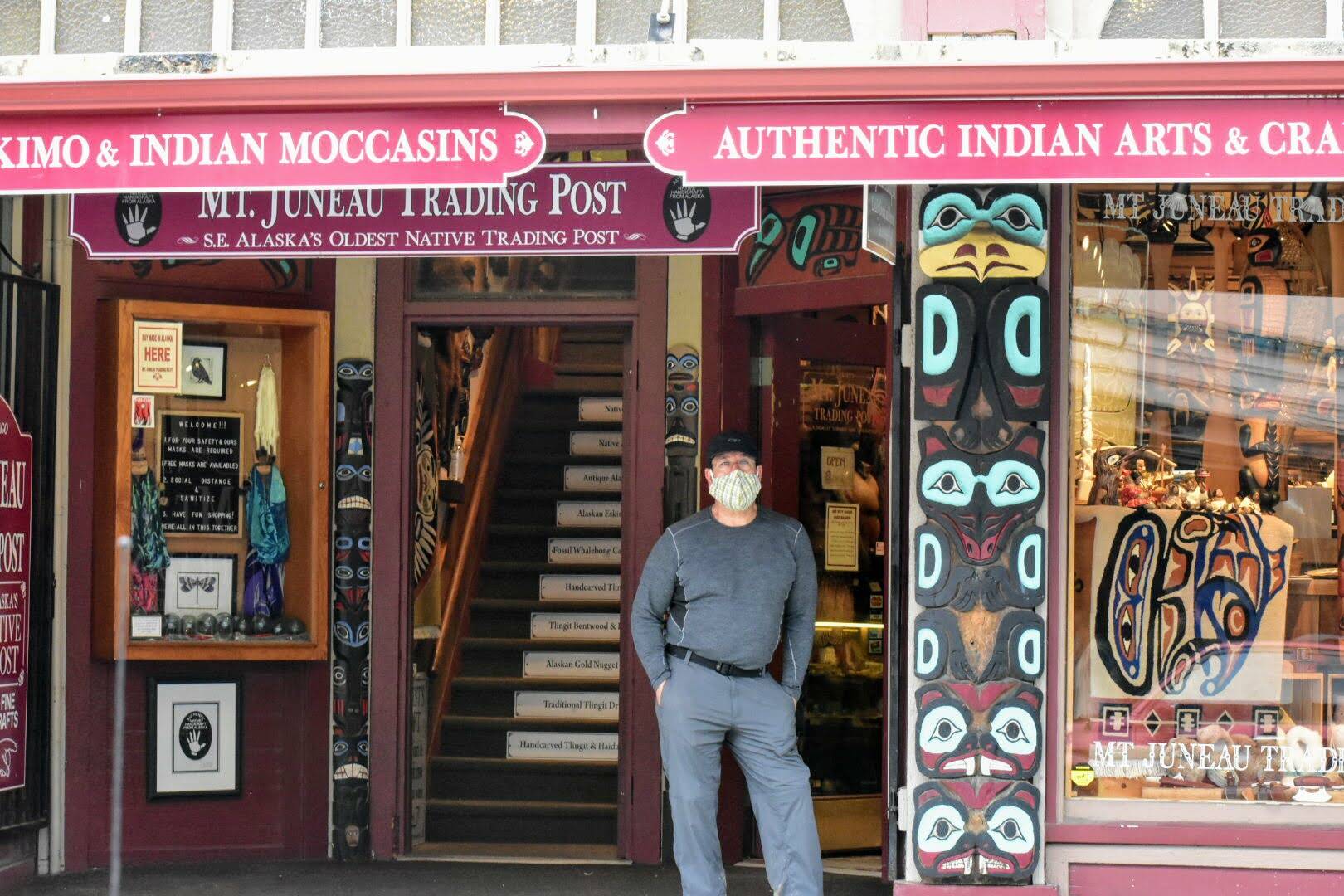After the City and Borough of Juneau voted to reestablish a fine for people who don’t follow the city’s COVID-19 mitigation measures, many are asking why the change and wondering how the fine will work.
The Wednesday evening decision to re-establish the fine was part of the vote that renewed the city’s ordinance aimed at curbing the spread of the virus. Without the renewal, the ordinance would have expired on Oct. 31.
The $25 fine was included in the initial mitigation measures passed last year. It was in effect until July 31, when the assembly voted to drop it.
At the time, overall case counts were slowly creeping up and the city extended the mitigation measures, minus the fine. In the last several weeks, case counts have swelled with the city routinely reporting 30 to 40 cases a day.
[City extends COVID mitigation measures, restores fines for violations]
Although often referred to as the “mask mandate,” the measures are a collection of mitigation strategies and the fine could be assessed based on a violation of any of them.
The strategies the city follows vary based on factors such as the level of viral spread, hospital capacity locally and regionally, and public health’s ability to conduct contract tracing. As the community risk level changes, the corresponding mitigation measures adjust.
Mitigations include limiting the size of public gatherings and requiring bars and restaurants to operate at reduced capacity. Public masking is a measure in place during times of high community spread—and the area that tends to generate the most attention.
The current community risk level is “Level 3-High,” a level that calls for vaccinated and unvaccinated people to wear masks inside public places. In addition, capacity limits apply to many businesses, and bars and restaurants must close at 11:00 p.m.
An important tool
While the fine has never been levied, city officials say that it’s an essential tool in giving the ordinance teeth and making it easier to enforce.
“When we have the option, the conversation becomes easier,” said Robert Barr, deputy city manager, in a Friday morning phone interview.
Barr said that when the fine is in place, the community service or police officer can use it as part of the conversation.
“The officer can say something like, ‘I really need to ask you to wear a mask. I don’t want to issue a fine, so help me out here,’” Barr said.
Barr said that having the option of a fine makes the mitigation measures a requirement rather than a suggestion.
He said that Juneau’s police officers are not “generally hunting around” for mitigation scofflaws, but that the city does follow up when complaints come in.
“We aren’t out and about looking for people not wearing masks,” Barr said. “We don’t have the capacity for that.”
During Wednesday’s meeting, Assembly member Loren Jones said that most of the violations that come to his attention revolve around businesses with employees who are not wearing masks.
Jones said he supported reinstating the fine because it provides a tool for people tasked with enforcing the rules.
“We aren’t trying to raise revenue or do anything like that,” Jones said. “But, if the community service officer goes out and people just thumb their nose, that puts a lot of staff in an uncomfortable situation.”
[Aid aloft: Medevac organization gets new aircraft
Yelp says its closed for good. When I was there this morning, there were for sale signs that mentioned the owners were retiring.
— David Reamer (@ANC_Historian) September 30, 2021
According to newspaper accounts shared online by Alaska historian David Reamer, during the 1918 flu pandemic, the Common Council of the City of Juneau, Alaska, imposed a $21 fine on people who did not wear masks “upon our streets and in all public places.”
If the 1918 fine was adjusted for inflation, the 2021 equivalent fine would be about $380.
“This is a duty you owe not only to yourself but to your fellow citizens, for is not the saving of one human life recompense enough for the few days of discomfort that the wearing of the masks may cause? Show your Juneau spirit, wear your mask for a few days so that we may again open our schools and our commercial activity may become normal once more,” reads the clip from November 1918.
Complaints
Barr said the volume of complaints around mitigation misses are pretty low — generally a few a week.
He also said the city staff members seek voluntary compliance by talking with people and trying to change behavior first. He said sometimes officers simply supply a mask.
Barr said the fine could apply to a business or a person, depending on the circumstances.
“It’s natural, human nature to focus on the negative and to pay attention to those interactions that aren’t the best. It’s super important to realize there are so many good things that outweigh the bad. More than 90% of the time, the interactions are good,” he said.
The assembly will revisit the ordinance early next year to consider if it needs to be renewed beyond March 1.
• Contact reporter Dana Zigmund at dana.zigmund@juneauempire.com or 907-308-4891.

